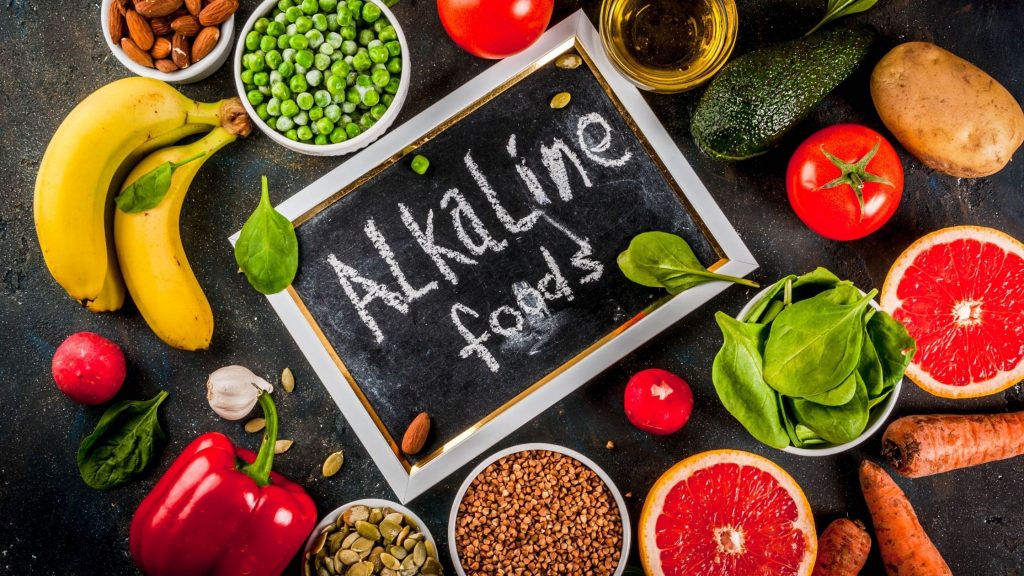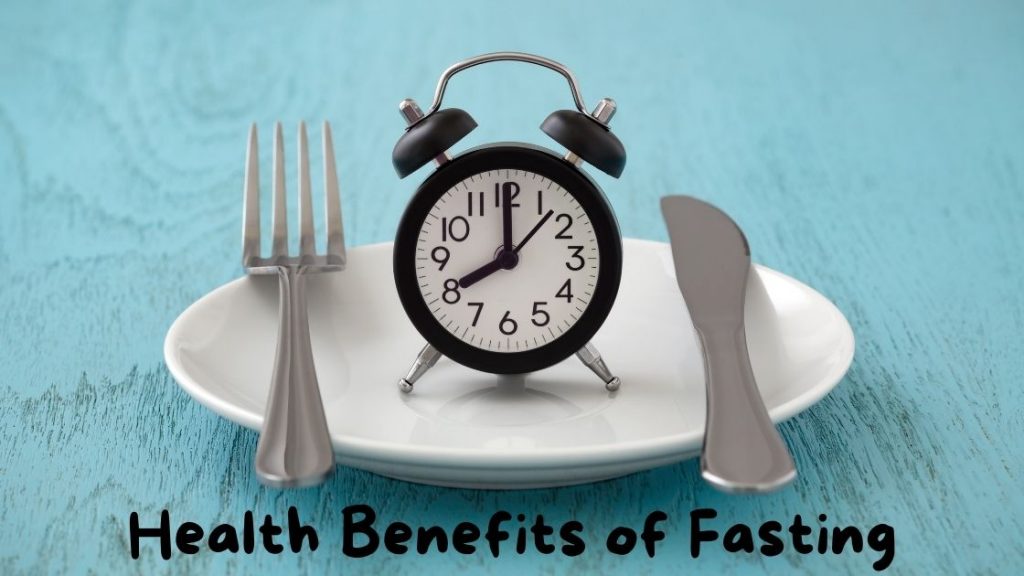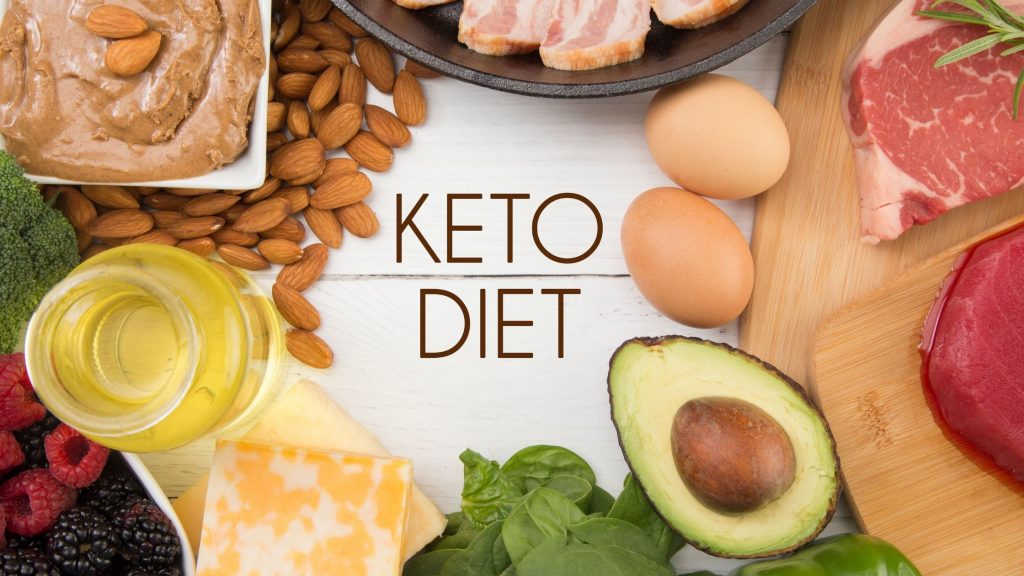The alkaline diet is an eating plan that focuses on maintaining an optimal pH level in the body. It is also known as the acid-alkaline diet; it emphasizes eating fresh vegetables, fruits, nuts, and legumes to maintain an ideal pH balance in the body.
The alkaline diet has been making waves in recent years. Followers of an alkaline diet swear by it and tout it as the best way to lose weight and become fit.
The popularity of the alkaline diet skyrocketed when celebrity Victoria Beckham tweeted about it in 2013. Other celebs have also expressed their love for this diet that claims to help you lose weight, improve your health, and even fight cancer and arthritis.
But what exactly is this diet and how does it help you to stay healthy? Let’s take a look.
What is the Alkaline Diet?
An alkaline diet is based on the premise that the food we eat alters the body’s pH to be either acidic or alkaline. It recommends eating specific foods that make your body more alkaline. The thought behind this is that changing the body’s pH level can improve your health and help you lose weight.
The diet involves avoiding meat, dairy products, sweets, caffeine, alcohol, artificial and processed foods, and consuming more fresh fruits and vegetables and nuts and seeds.
An alkaline diet has gained so many followers is that it aids not only in weight loss but in reducing the risk of diseases that are caused due to a lack of nutrients and antioxidants in the body.
But how do you maintain the pH level of your body, why does the body become acidic, and how do you make it alkaline. Let’s try to answer these questions.
pH, Being Alkaline, and Being Acidic
The pH scale measures the acidity-alkalinity of your body on a scale from 0 to 14. The pH of 7 is considered neutral, a pH less than 7 is acidic and a pH greater than 7 is alkaline. The pH level of the body is strictly regulated. However, the foods you eat can influence the pH level of your body. Actually, our bodies are naturally alkaline but the foods we consume have altered their pH.
Your body’s internal environment is maintained at an alkaline pH (6.5 – 7.5). For essential functions to occur, your body must maintain this appropriate pH. While your body can regulate pH, but it can’t do so beyond a limit.
When you continue to eat acidic food, excess acid builds up in your body. This puts the alkaline system that regulates the pH under tremendous stress.; it has to work doubly hard to neutralize the acids in your system. The excess acid load negatively affects the body’s cellular functions, and your body does not work very well. So, the high acid levels in the body lead to various health issues.
Why the pH Levels Change?
Our ancestors were hunters and gatherers. They consumed a diet full of fresh fruits and vegetables, nuts, and legumes and were always very active. Modern diseases were practically non-existent amongst them.
With the advent of the agricultural revolution and industrialization, our diets transformed drastically to include grains, salty foods, trans fats, dairy products, and red meats. This altered the pH and net acid load of the human diet. Our ideal pH balance was disrupted. The high consumption of acidic foods impacted our bodies resulting in low calcium, potassium, magnesium, and mineral levels, making us more prone to illness.
As the saying goes, “you are what you eat,” the food you eat makes or breaks your health. Foods fall into one or the other category, that is, acid or alkaline. The current diet of us humans is high in processed junk food. The foods we eat are too high in fat, protein, and sugars resulting in excess acid production. Our lifestyle is also not helping the matter. The stress and distress we suffer from add to the acidic nature of our bodies.
You can see that the one factor that can determine how healthy you are is whether you have an alkaline body or an acidic body. Even a minor disruption in pH has a significant impact on your health.
The goal of the alkaline diet is to give the body foods that are alkaline and keep the body alkaline. An alkaline diet provides the body with all of the nourishment to help support the body and maintain pH. Avoiding foods with high acidic content and eating more alkaline-forming foods will make your body alkaline, preventing the damage that can occur with an overly acidic diet.
However, you have to remember that each cell, tissue, or organ (like muscle, stomach, or blood) has its own optimal pH level. You also have to remember that food in itself cannot change the body pH. Some of the factors that make your diet acidic are sugar content, fermented foods, refined foods, meats, and dairy products. They cause the body to be overrun with acidity.
Another thing to note is that the pH level in your blood does not change except for when you are critically ill. The body regulates blood pH by excreting acids in the urine. But food can change the pH of the urine and saliva.
An acidic pH can occur due to high consumption of acidic foods, toxic excess, distress, lack of exercise, and immune reactions. In such situations, the body tries to use alkaline minerals to compensate for acidic pH. If the diet lacks minerals, a buildup of acids in the cells occurs.
An alkaline diet encourages eating more alkaline-forming foods. This neutralizes excess acids and makes it possible to lead a healthier and more fruitful life.
What Can You Eat on An Alkaline Diet?
In an alkaline diet, the focus is on eating lots of alkaline foods and fewer acidic foods. These foods help maintain the pH balance in your body.
Fresh Fruits and Vegetables
You can eat avocado, broccoli, celery, cucumber, lettuce, tomato, lemon, spinach, peppers, apple, banana, cantaloupe, watermelon, raspberry, blackberry, grapefruit, grape, strawberry, tangerine, peach, pear.
Onion, Garlic and Ginger
Onion, garlic and ginger enhance flavor are great flavor enhancers and are great at maintaining pH balance too.
Legumes
Include peas and beans in your diet.
Root Vegetables
Sweet potato, radish, turnips, beetroot, and carrots are great source of alkaline foods which helps to keep up the pH balance. They are also amazing source of soluble and insoluble dietary fiber.
Nuts & seeds
Include cashews, chestnuts, almonds, pumpkin seeds, sesame seeds in your daily diet.
Foods to Avoid
- Meats
- Fish
- Milk
- Yogurt
- Eggs
- Cheese
- Flours (except buckwheat and millet)
- Alcohol
- Soda
- Peanut butter
- Barley
- Corn
- Oatmeal
- Fried food
- Salty food
- Rice
What You Should Know
The alkaline diet does not involve fasting. You need to eat more alkaline foods and fewer acidic foods. Moreover, you should focus on striving for a balanced diet.
You should talk with your physician or dietitian before starting with the alkaline diet. You want to make sure you’re not cutting out important nutrients or inadvertently harming your health.
Testing and Monitoring pH
Once you start following an alkaline diet, you will have to keep track of your pH levels. You need a pH test paper.
This paper tests the acid-alkaline levels of your bodily liquids. You can either use urine or saliva to test your pH levels.
However, using your first urine in the morning is highly recommended. Just dip the pH test paper in the urine you have collected.
The test paper packet has a color chart to help you figure out your acidity levels.
The colors have numbers written by their side. Ideally, your first-morning urine pH should be in the range of 6.5 to 7.5. If your number is below seven, you are acidic, but you are healthy if you are above 7.
If you are acidic, you should start on an alkaline diet. Once you start consuming foods with higher alkaline content and lower acidic content, your body starts to heal.
The alkaline diet brings it closer to a healthy alkaline level rather than an acidic one.
Benefits of Alkaline Diet
An alkaline diet rich in fresh fruits and vegetables, high in fiber and minerals, and healthy fats can be beneficial for overall health.
Aids in Weight Loss
Since an alkaline diet is mainly a plant-based diet, it promotes weight loss. You are consuming fewer calories which helps your body burn fat faster.
However, remaining physically active, staying hydrated, and eating a wide variety of healthy food are key to weight loss and maintaining a healthy weight.
Protects bone density and muscle mass
When your acid content is lowered, bones become stronger and can absorb the healthy minerals that contribute towards better bone health.
Your body gets more strength from the minerals it consumes; this helps increase muscle mass and strength.
Improves growth hormone levels
An alkaline diet prevents acidosis and improves growth hormone levels.
Improved growth hormone levels may reduce cardiovascular risk factors, improve body composition, and promote better memory and cognition.
Lowers risk for hypertension and stroke
A healthy diet such as an alkaline diet helps you to stay fresh physically as well as mentally. If you’re less stressed, you are unlikely to suffer from high-stress-related diseases like hypertension and stroke.
Lowers chronic pain and inflammation
Alkaline foods help with chronic pain. Alkalinity helps avoid chronic back pain, joint pains, muscle spasms, headache, and inflammation.
Prevents cancer
An alkaline diet rich in fruits, vegetables, and whole foods grains and avoids meats might prevent cancer.
Reduces heart disease risk
An alkaline diet lowers heart disease risk factors by removing red and processed meats from the diet.
Conclusion
Modern diets high in processed junk food give rise to acidity by altering the body’s pH levels.
An alkaline diet emphasizes mindful eating – it advocates healthy choices of foods including vegetables, fruits, nuts & seeds, drinking plenty of water and exercising. It limits processed foods salty foods, sugar, meat, soda, and alcohol.
Thus, it enhances overall well-being, helps shed excess pounds, reduces inflammation and lowers the risk of cancer. However, before embarking on this diet, be sure to talk to your dietitian and physician. They will help you to arrive at the diet plan that suits your health and lifestyle.



